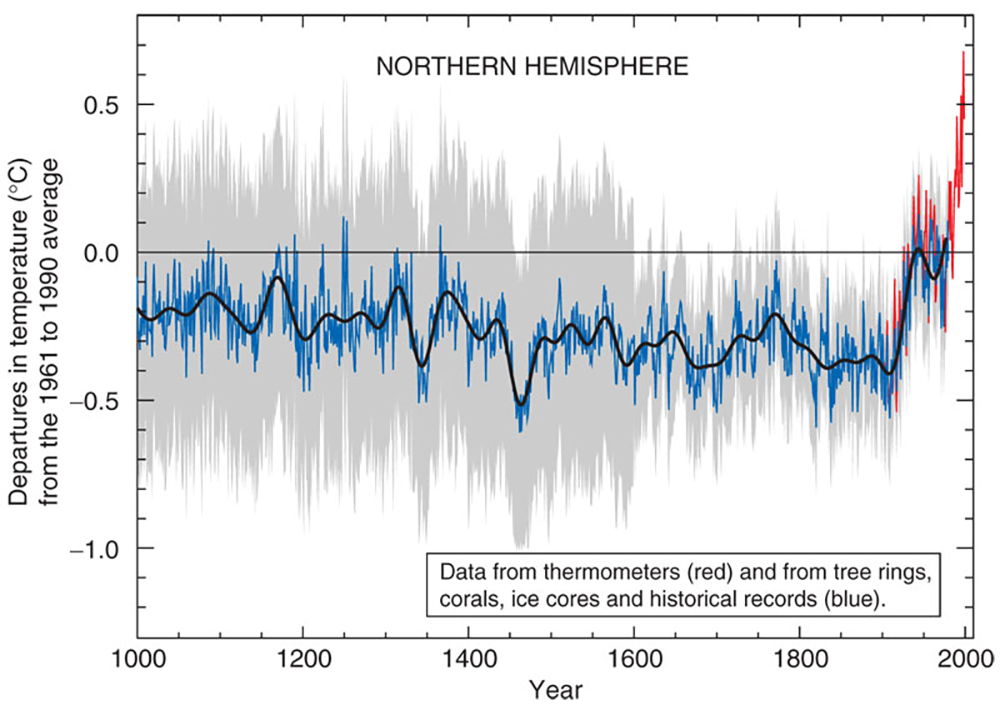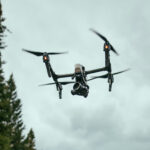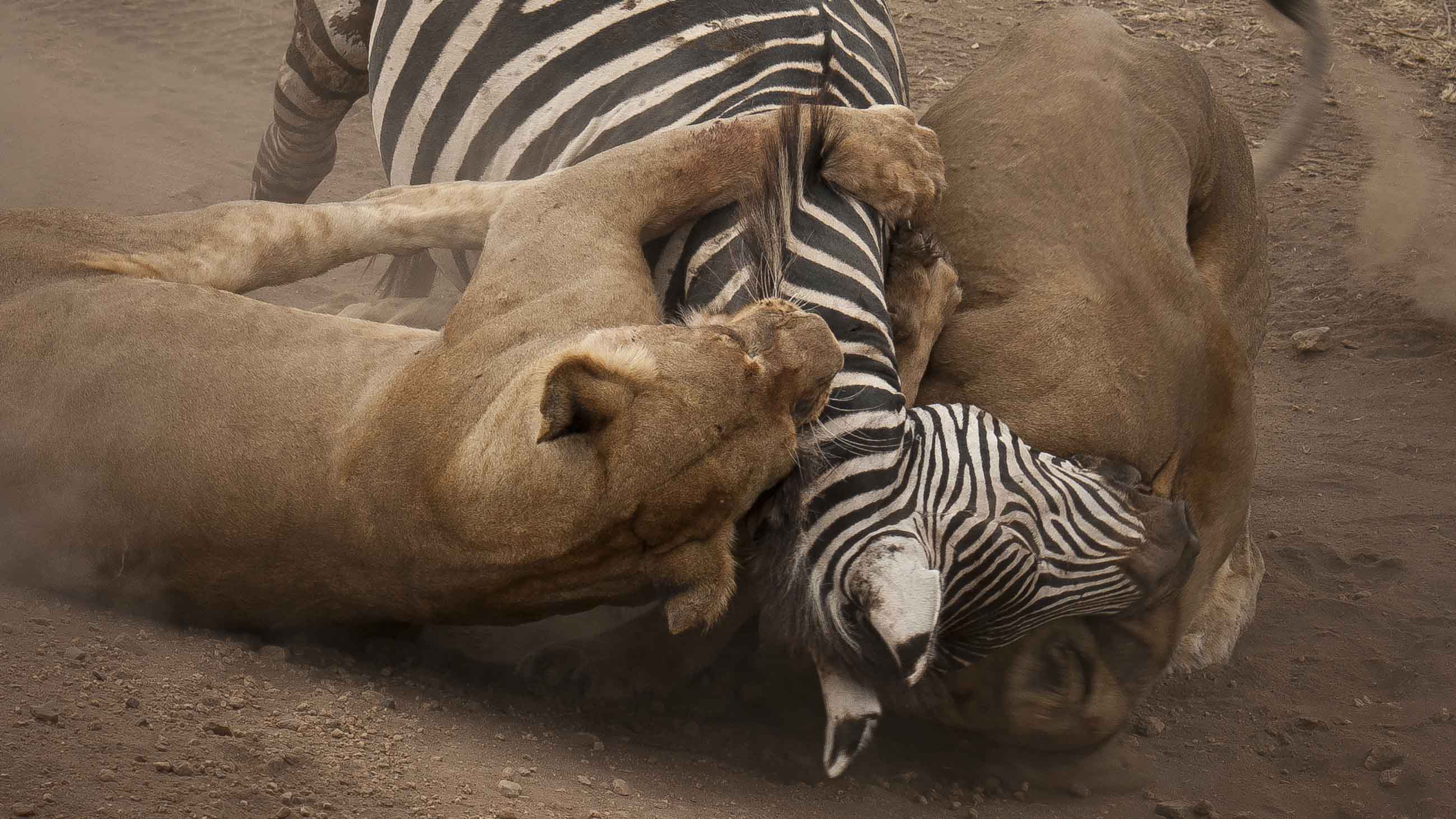Open Season on Climate Science
I coined the term “Serengeti Strategy” in my 2012 book “The Hockey Stick and the Climate Wars.” It’s meant to describe how industry special interests and their patrons in power single out individual researchers or teams of scientists for attack, in much the same way lions of the Serengeti single out an individual zebra from the herd. In numbers, after all, there is strength, while individuals and small groups are far more vulnerable — and the purpose is two-fold: to undermine the credibility of wider scientific consensus, and to discourage other researchers from sticking out their necks and participating in the public discourse over matters of policy-relevant science.

When it comes to attacks on climate scientists specifically, this strategy follows a familiar script. On the eve of a critical Congressional vote, hearing, or climate policy summit, a late-breaking “scandal” suddenly erupts. Individual scientists are typically charged with claims of misconduct, fraud, or data manipulation, and soon enough, right-wing blogs, climate-denying websites, and the conservative establishment media are trumpeting the accusations. In time, more objective media outlets are forced to cover the uproar, lending it credibility and oxygen, even as it is responsibly dissected.
With the public conversation hijacked, meaningful progress on climate policy is blunted, and the vested interests seeking to maintain our current addition to fossil fuels prevail.
The latest example of this strategy began unfolding earlier this week, when David Rose, an opinion writer for the British tabloid The Daily Mail — known for misrepresentations of climate change and serial attacks on climate scientists — published a commentary attacking Tom Karl, the recently retired director of the National Centers for Environmental Information at the U.S. National Oceanic and Atmospheric Administration, and a scientist for whom I have deep respect. Rose accused Karl and his co-authors of having “manipulated global warming data” in a 2015 study published in the journal Science. These charges were built entirely on an interview with a single disgruntled former NOAA employee, John Bates.
Rose’s charges and Bates’ allegations have since withered under scrutiny by journalists — and by the wider scientific community, which quickly noted that the findings of the 2015 Science paper have been independently, and repeatedly, verified by other researchers. Bates’ secondary claims that data from the Science paper had not been properly archived, and that it was “rushed” to publication, have also fallen apart.
Still, the mission of this latest disinformation campaign has been accomplished, and with its mooring in technical details too remote for casual news consumers to fully investigate, the headlines will nonetheless create additional drag on any well-meaning efforts to address climate change.
As a climate scientist, I should know. I’ve found myself at the center of such episodes more than once, as a result of what’s become known as the iconic “hockey stick” diagram that my co-authors and I had published in the late 1990s — a graphic display of the data that made plain the unprecedented rate of global warming. While the hockey stick is hardly the basis of the case for human-caused climate change, the visually compelling character of the graphic has made it — and indeed me — a target of climate change deniers for years.

In the fall of 2003, just days before a critical U.S. Senate resolution to acknowledge the threat of human-caused climate change, an article in the journal Energy & Environment — regarded by many as a haven for climate skeptics — engaged in unsubstantiated attacks of the hockey stick. A group with ties to the fossil fuel industry published an op-ed trumpeting those criticisms in USA Today on the morning of the Senate vote. Sen. James Inhofe, the Oklahoma Republican who has described climate change as “the greatest hoax ever perpetrated on the American people,” gleefully read the article aloud during the Senate floor debate. While the critique on the hockey stick would soon be summarily dismissed, it served the short-term purpose of hijacking the discussion, and the bill did not pass.
Two years later, as the House of Representatives was considering energy and climate legislation, Joe Barton, a Texas Republican and chair of the House Committee on Energy and Commerce — and a leading recipient of fossil fuel money — engaged in what was widely condemned as a “witch hunt” against me and my hockey-stick co-authors. Barton demanded all of my personal emails and correspondence with other scientists, and numerous other materials, in an apparent effort to find something he could use to discredit our work. Amid these “investigations,” the bill died in subcommittee.
Then, on the eve of the 2009 United Nations climate summit in Copenhagen, a trove of email correspondence among the international community of climate scientists, including myself, were stolen from a British research server and published. Cynical actors scoured the correspondence for out-of-context snippets that could be made to seem embarrassing or even damning. These were posted on climate change deniers’ websites and then spread through right-wing blogs and news sites. Soon even mainstream news organizations were credulously parroting the unlikely narrative: that a few stolen emails somehow called into question nearly two centuries of scientific research.
At least 10 investigations and reviews followed what became known as “Climategate,” and each one has concluded that there was no wrongdoing on the part of the scientists — indeed, the only wrongdoing was the criminal theft of the emails in the first place. The vindications, however, occurred long after fossil fuel interests had helped to prevent the development of a strong international agreement limiting carbon emissions.
Today we have the attacks on Karl and NOAA. They come at a time when one of the leading false narratives among climate change deniers — that global warming has somehow stopped — has finally been fully debunked. After all, we have now broken the all-time global temperature record for three consecutive years, and a number of published articles have convincingly demonstrated that global warming has continued unabated, even amid natural, short-term fluctuations. Among the most prominent of these studies was the one published by Karl and his colleagues in 2015. The paper was widely viewed as finally putting to rest the dubious argument that the globe has stopped warming.
But facts be damned. Shortly after this week’s Daily Mail article went live, the story spread like a virus through the right-wing blogosphere. A video attacking Karl (and NOAA and even NASA for good measure) was posted by The Wall Street Journal, and Fox News alleged, without a hint of irony, that Tom Karl had “cooked” climate data and for political reasons. Climate change deniers soon branded the pseudo-scandal “Climategate 2.0.”
Lamar Smith, a Texas Republican and chair of the House science committee with a history of launching attacks on climate science and climate scientists, quickly posted a press release praising the Daily Mail article on the science committee website. It was convenient timing. Smith had been planning a congressional hearing aimed at calling into question the scientific basis for regulating carbon emissions under the Environmental Protection Agency. Suddenly, Smith had a scientific “scandal” that he could use to undermine all of climate science — and again, this is the real crux of the Serengeti Strategy.
Even if the 2015 study by Tom Karl and his colleagues was completely wrong, it wouldn’t in any way alter what we’ve come to know over two centuries of diverse and disciplined scientific research about climate change. But these essential truths aren’t as important to our critics as the optics of a single scandal — and of course the head of a single researcher, or the hides of a team of scientists. And just as they have intentionally ignored the many independent studies reaffirming our “hockey stick” curve in the peer-reviewed scientific literature, so too are Karl’s critics now ignoring the fact that his findings have been replicated and confirmed by other research groups publishing in peer-reviewed journals around the world.
The playbook rarely changes — but one thing is different now, and that’s concerning: The latest attacks take place amid historic political hostility toward science in general, and climate science specifically. We now have a president who has famously dismissed climate change as a hoax perpetrated by the Chinese, an administration comprised of climate change deniers and fossil fuel industry representatives, and a Republican Congress committed to dismantling even the modest regulations on carbon pollution that the U.S. has managed to implement to date.
When I was attacked by Joe Barton a decade ago, at a time when both houses of Congress and the presidency were in the hands of Republicans, I nonetheless found support from the Office of Science and Technology Policy under then-President George W. Bush, as well as from moderate, pro-science Republicans like Sen. John McCain of Arizona, and former Rep. Sherwood Boehlert of New York.
Americans should be asking where these good-faith conservatives are today. Why are they not speaking out against this latest abuse against science and reason? If they fail to voice their concerns, it may well be open season on the Serengeti — and it’s impossible to guess how many scientists, and how much crucial science, will be ripped apart.
Michael E. Mann is Distinguished Professor of Atmospheric Science at Pennsylvania State University, director of the Penn State Earth System Science Center, and the author of three books, including “The Hockey Stick and the Climate Wars,” and most recently, “The Madhouse Effect: How Climate Change Denial Is Threatening Our Planet, Destroying Our Politics, and Driving Us Crazy.”











Comments are automatically closed one year after article publication. Archived comments are below.
David Mann you are a data fraudster, and after 8 years of a BC Judge ordering you tro show your data, you refused, had to PAY ALL OF DR. TIM BALL’S LEGAL FEES; you lost David!
That would proove it inside a Court of Law, “Under Oath”, your hockey stick graph is faked. You really do belong in the state pen i say!
Dr. Tim Ball revealed your IPCC Terms of Reference that prohibit mention of Earth made CO2 being >19X CO2. Man made CO2 is 3.5%, but lets call it 5% for this Word Problem you cannot seem to solve.
You are Climate Gretta, and your Solar Yacht has sprung a water leak, and is leaking IN 100 Gallons of water per minute. You and your crew with 100% effort, are capable of bailing out 5 Gallons per minute. Why do you insist on bailing at all. When will you see your shame you shameless fraudster?
Perhaps the law of unexpected consequences will work in our favor for a change. The reaction to Trump’s nonsense may cause a back lash and result in movement in the right direction which didn’t occur under advocacy for sensible action. Just the other day, I heard a bunch of GOP (pronounced gop) senators propose a carbon tax. I had to read it over a few times to believe what I saw. Fingers crossed.
North Dakota is trying to pass legislation that will likely make wind farms a thing of the past.
http://bismarcktribune.com/news/local/govt-and-politics/lawmakers-debate-future-of-wind-energy/article_b16118bc-6bba-5d2b-ad9a-24c9fc659bb4.html
Thanks, Jack. I was intrigued by your idea that “Big Green” was bigger than the oil industry, so I looked it up. You know, facts. So it turns out that the US oil industry rakes in about $150 billion a year, although, since they keep most of the profits offshore, the world oil industry at $1.2 trillion might be a better baseline. Then I looked though a lot of right-wing stuff like the Washington Examiner to find out just how Green big Green was, and couldn’t find anyone who thought the environmental groups in the US made any more than, say, $2 billion a year, tops, for all of them. Just FYI.
The fossil fuel industry has nothing on Big Green, the climate fascists who control the research and the media.
“Big Green” does not finance climate change research; most of the $ comes from government sources.
That was for Mr Big Green….seriously Big Green? I wish there was money in being an environmentalist.
So, I’m a publicly funded climate scientist, and I know a large fraction of the climate science community. If your conspiracy theory is right, it’s a) extraordinarily secretive, given I’ve never heard a single person mention it, or the possibility of it, ever (in 15 years of hanging out in climate modeling centers). That we are involved in a conspiracy is laughable to everyone I know. It’s very hard to get contrarian scientists to agree on anything! It’s also b) pretty paltry, given that where I live, climate scientists can’t afford to buy a house in the same town…
Haha what…… you are joking right?
“Lions” of the Serengeti? More like jackals. (In full expectation of the inevitable sharply worded rebuke from Biologist/jackal researchers. ;-)
Public information are spun by the media which know how fickle we are with our spun source. Sensationalism works on we, creatures of habit who get their boring lives hyped with curiosity. You ever look back at the public be headings & hangingso & think, who were these people, our forefathers & foremost hers who were so spell bound by the vengeance? We may have gained some civility, but we are still spell bound by the hype.
So now we have taken the lesson of how to manipulate the curious & fickle public opinions, to sway them into a well paid fossil fuel interest, $$$ & paid deniers line up in the Republican house & senate with reasons or treasons, willingness to do those rich oil & other fossil fuel money their, sold & paid for, favors.
Our only saving grace ithe seems, is in the fact that those wells & drilled fuels are of a finite resource. We can hope that this Era will see the end of its nod in favor & not be profitable for too much longer.
I know that synopsis leaves no hope for the climate. Simmorly, is this Trump’s bow to them now.
Eventually you figure out that we could all be wiped out in a near term by a tyrant vs tyrant rage with WMD’s from NK. I’ll fight for truth & reason in everything but, I’ll laugh & take as much fun as I can get today.
My deepest respect to Professor Michael E. Mann. I’m sorry you were targeted & you Sir, deserve retribution from these witch hunters.
When confronted by conflicting views, fallibility is the first principle to get lost. At most one side is right, and of all possible paths forward the likelihood of either path, in this case – suspend judgement or resolve at any cost – is justified is slim. The “Serengeti Strategy” works in both directions. Keeping out alternative approaches out is not the best strategy against a hidden agenda.
The alternative approach that has gotten virtually no support is modeling the earth’s thermal control system as both a short term Active System and a long term Passive System similar to that designed for the International Space Station. Improving both the flow of heat to the poles and to the night side of the planet (radiator panels) so it can be more efficiently radiated to space is just as important as making the atmosphere (skin of the platform) a less resistive to infrared radiation. While it may take hundreds of years to improve the GHG composition of the atmosphere, reducing cloud cover, humidity and sea ice at night while increasing these barriers during the day could potentially stabilize climate in the short term at little cost.
Doing nothing would not be acceptable on either the International Space Station or on the earth.